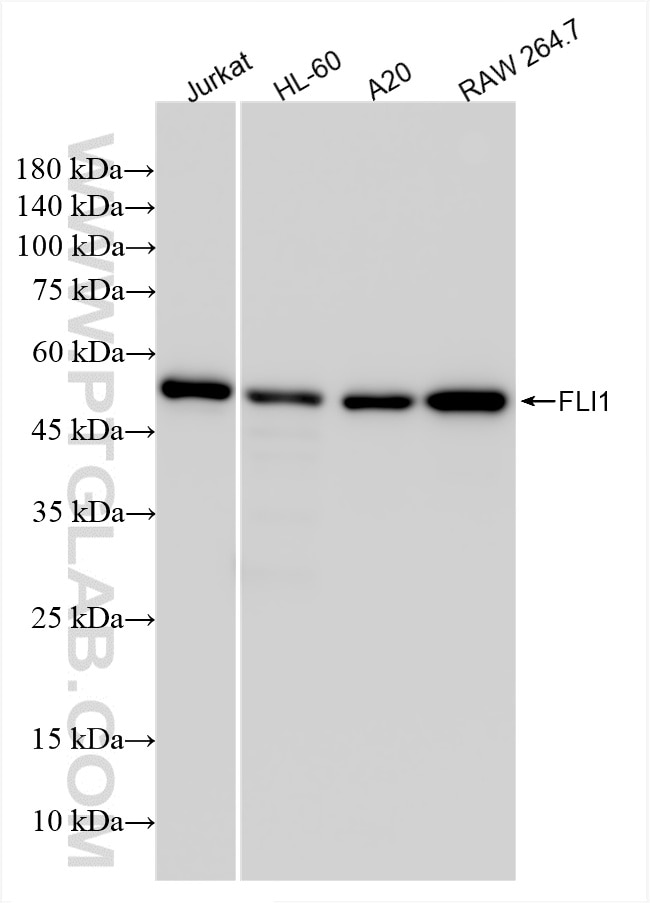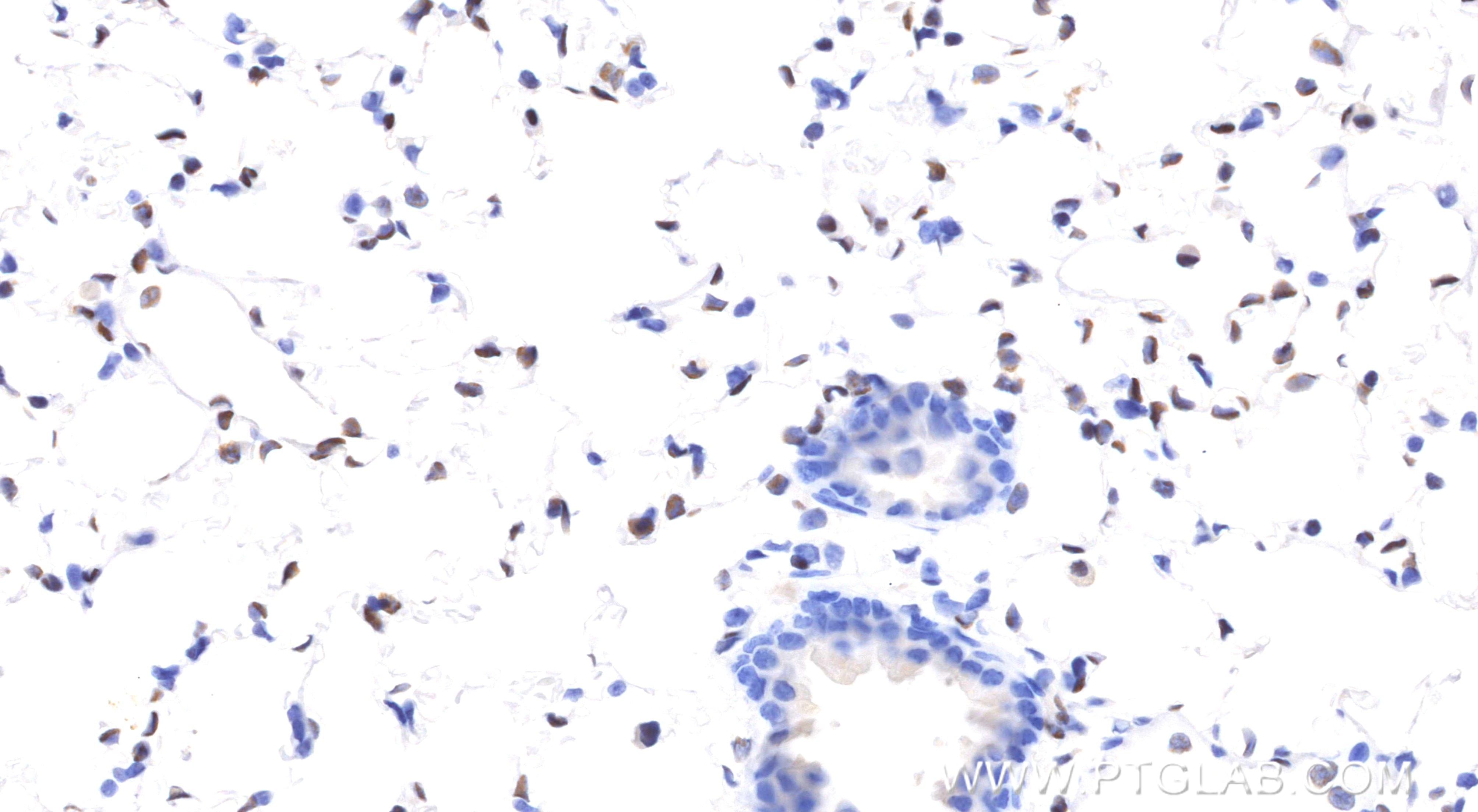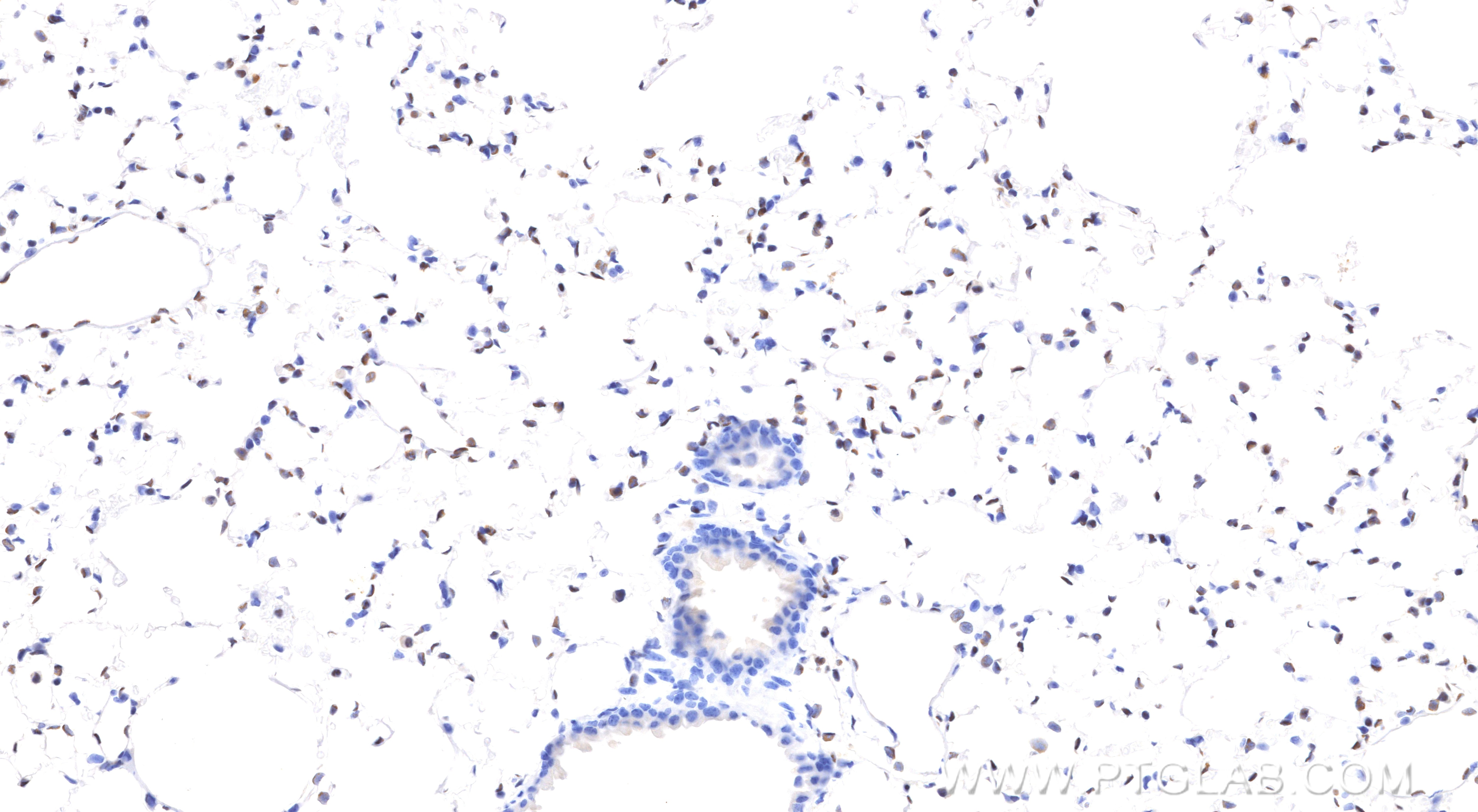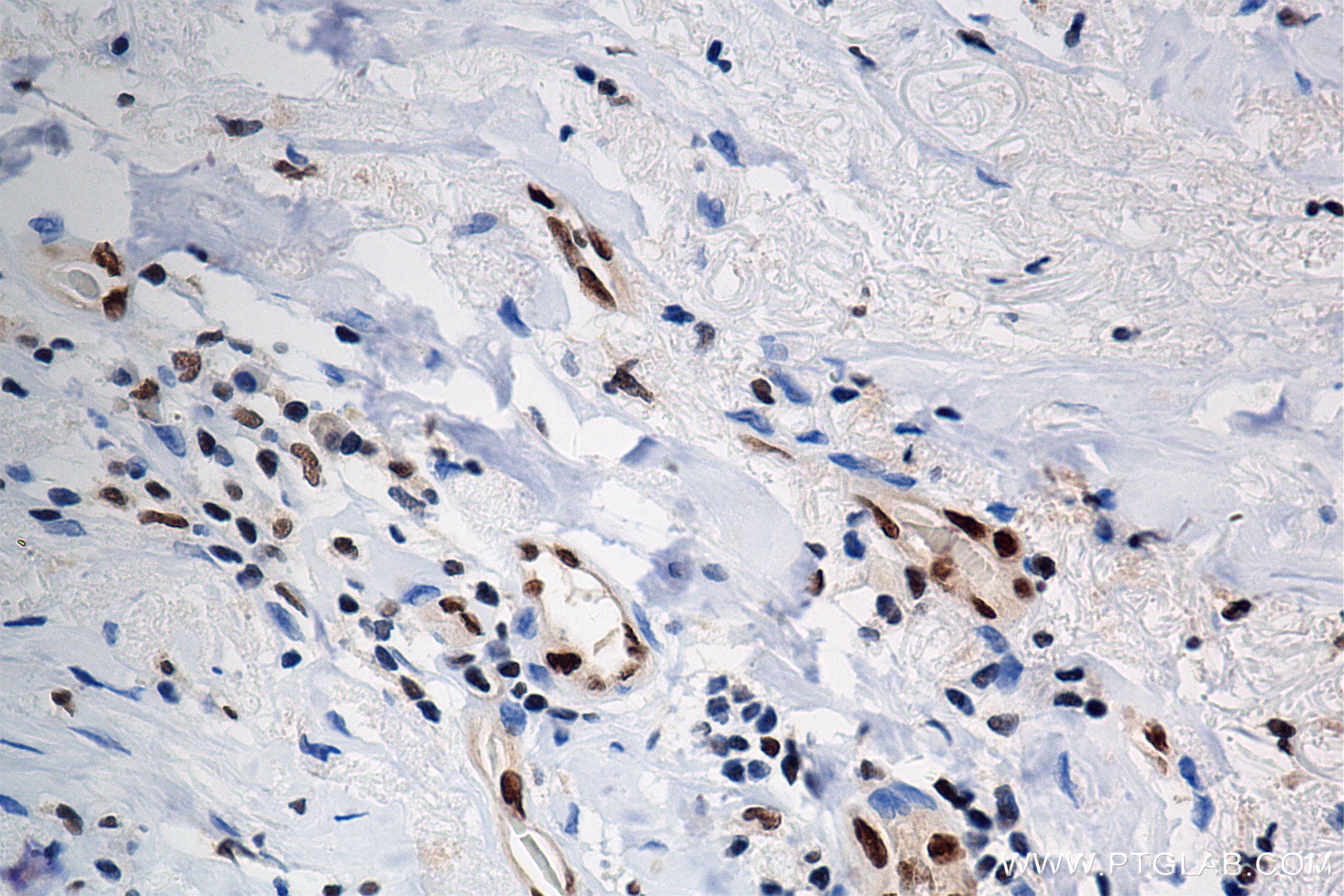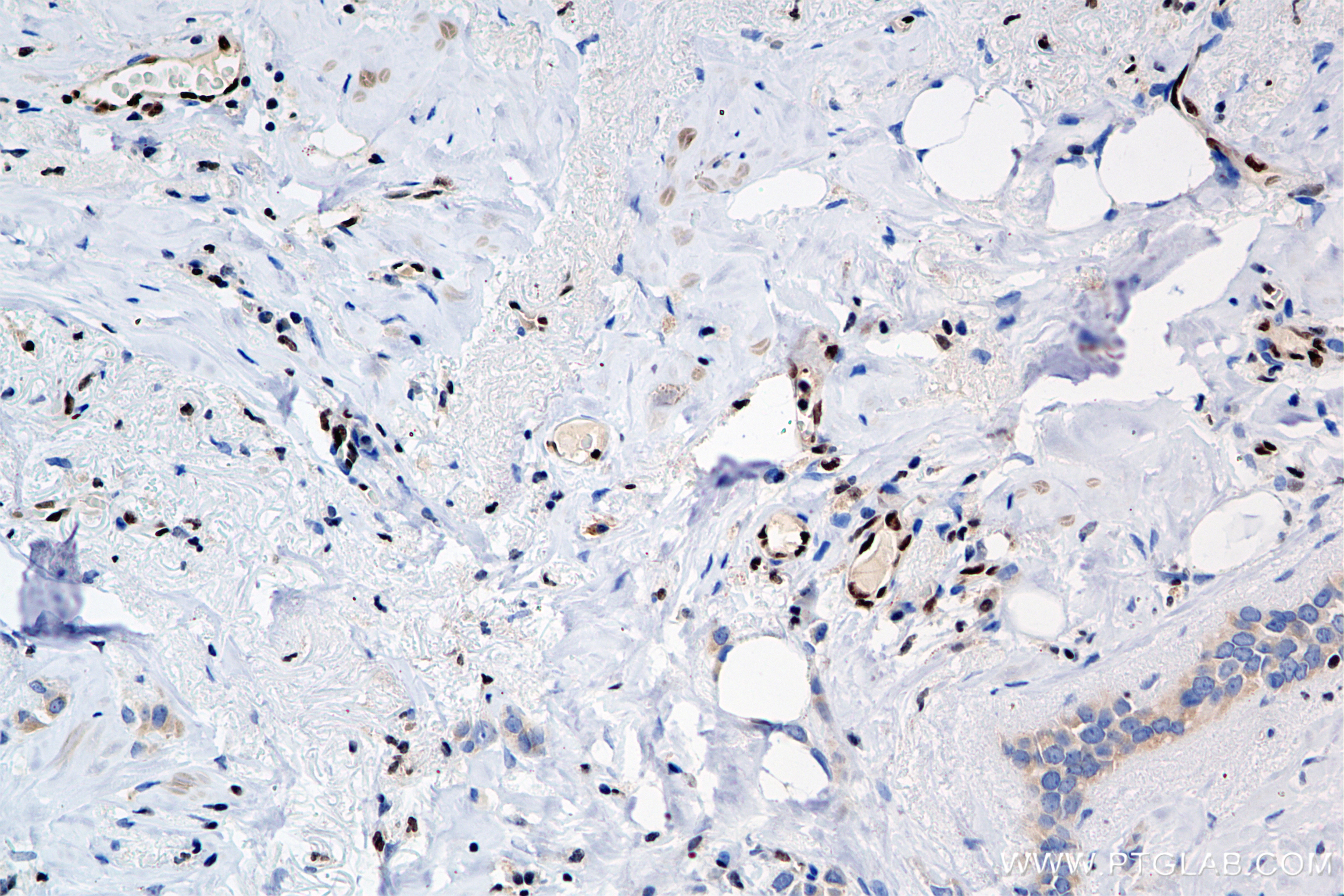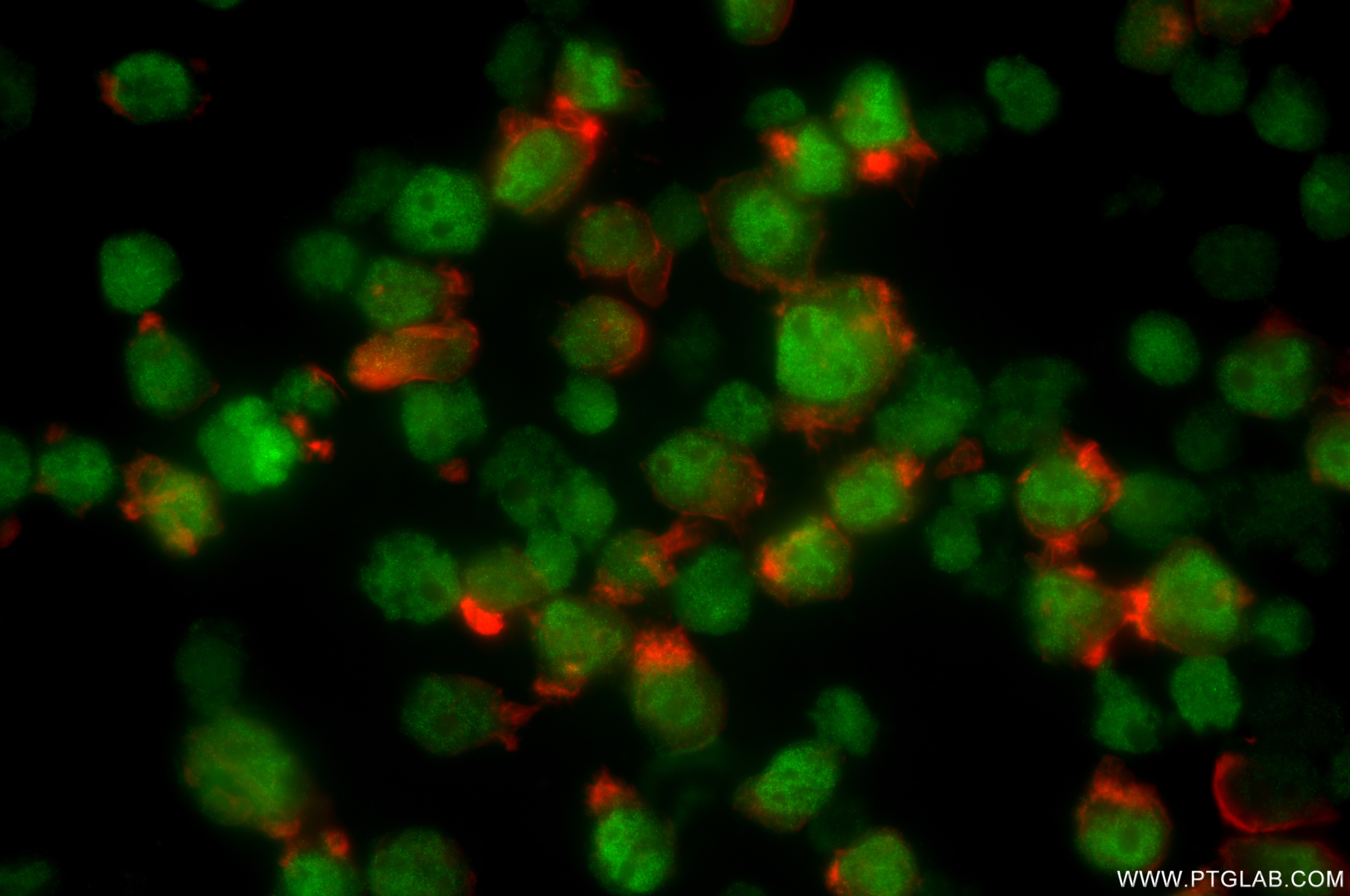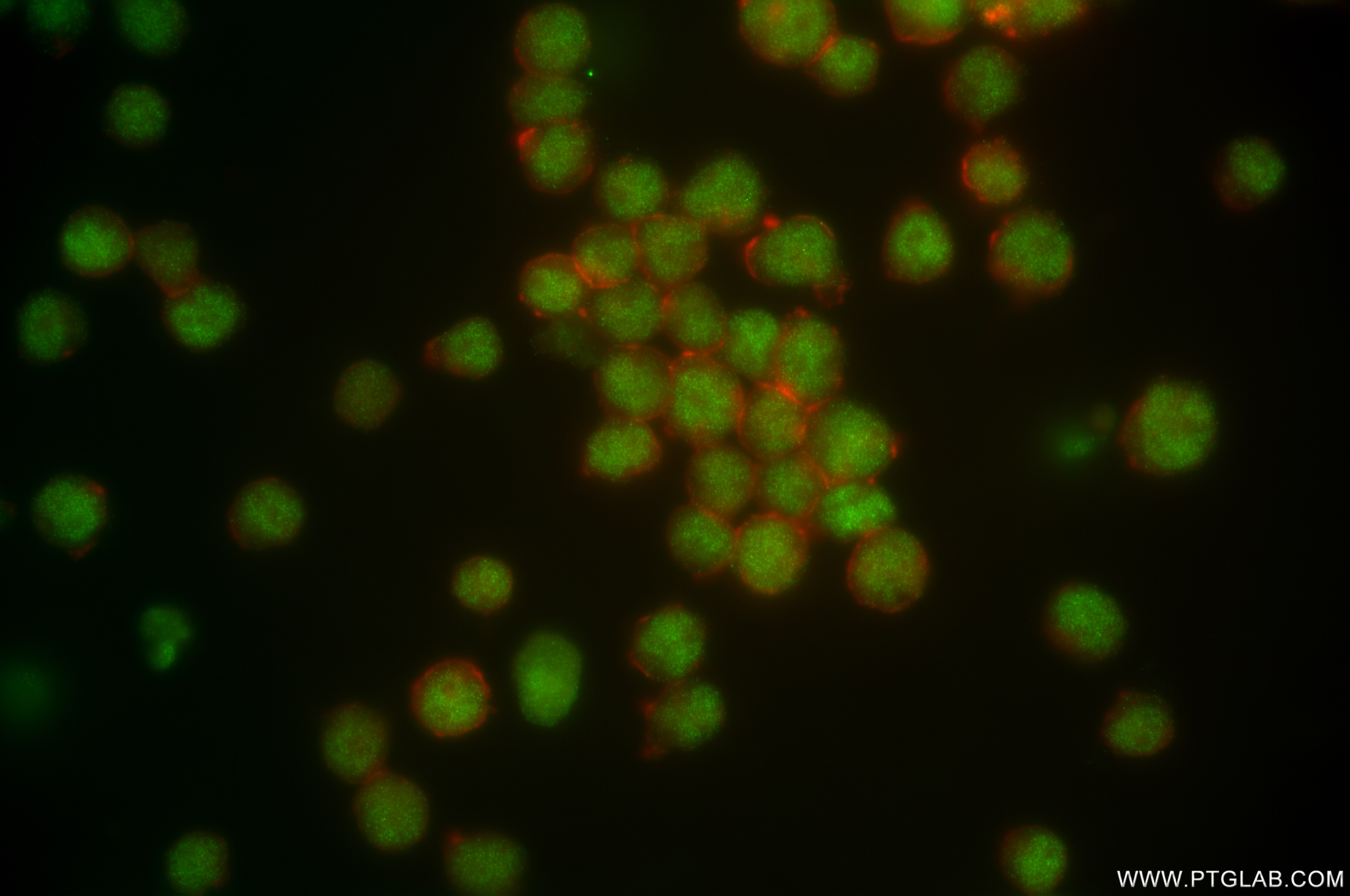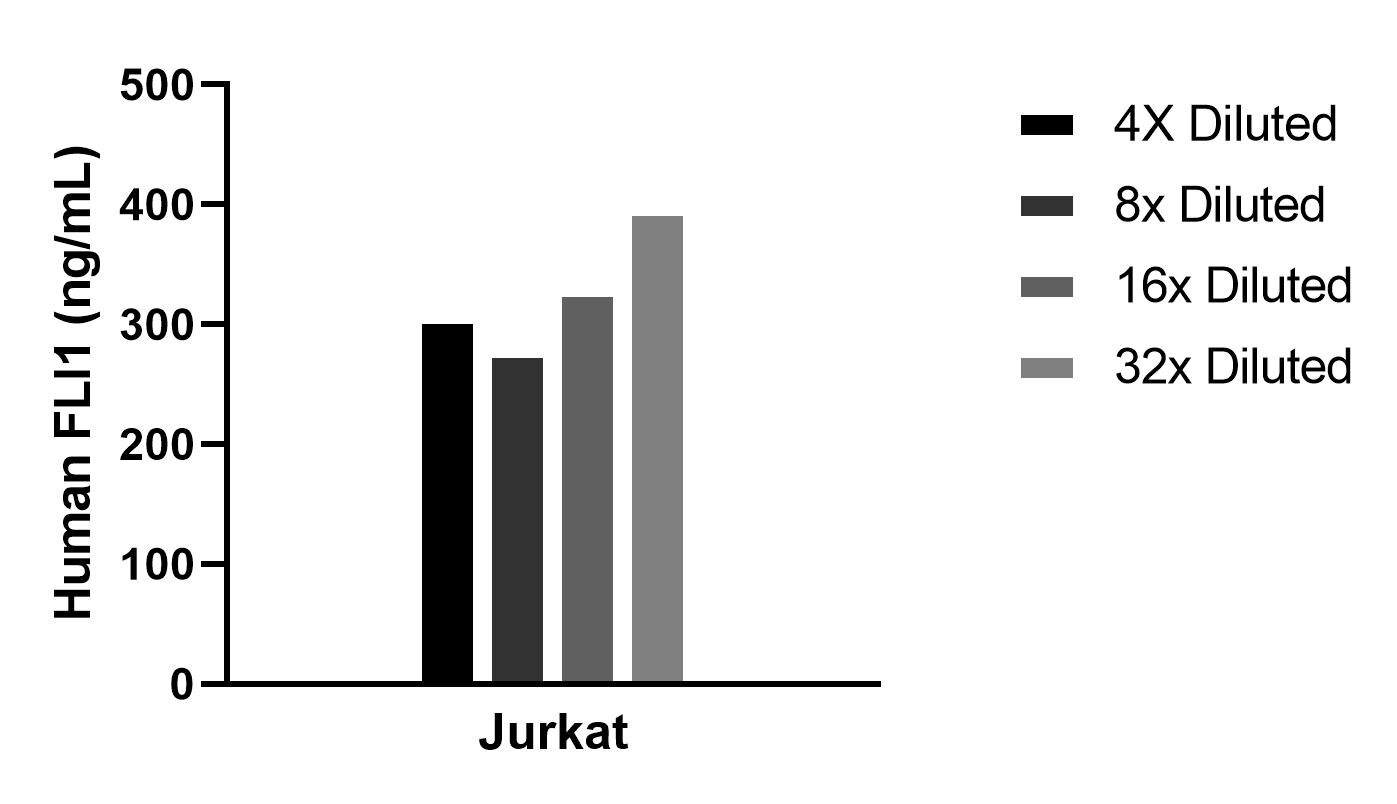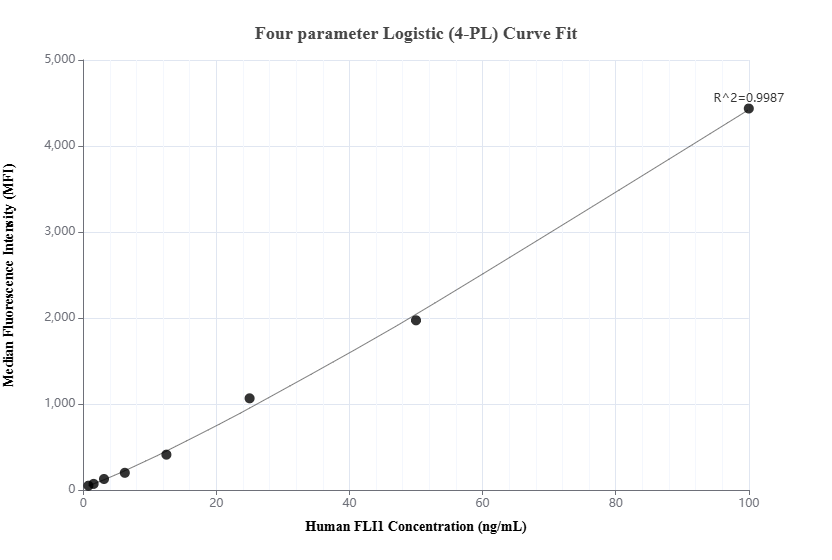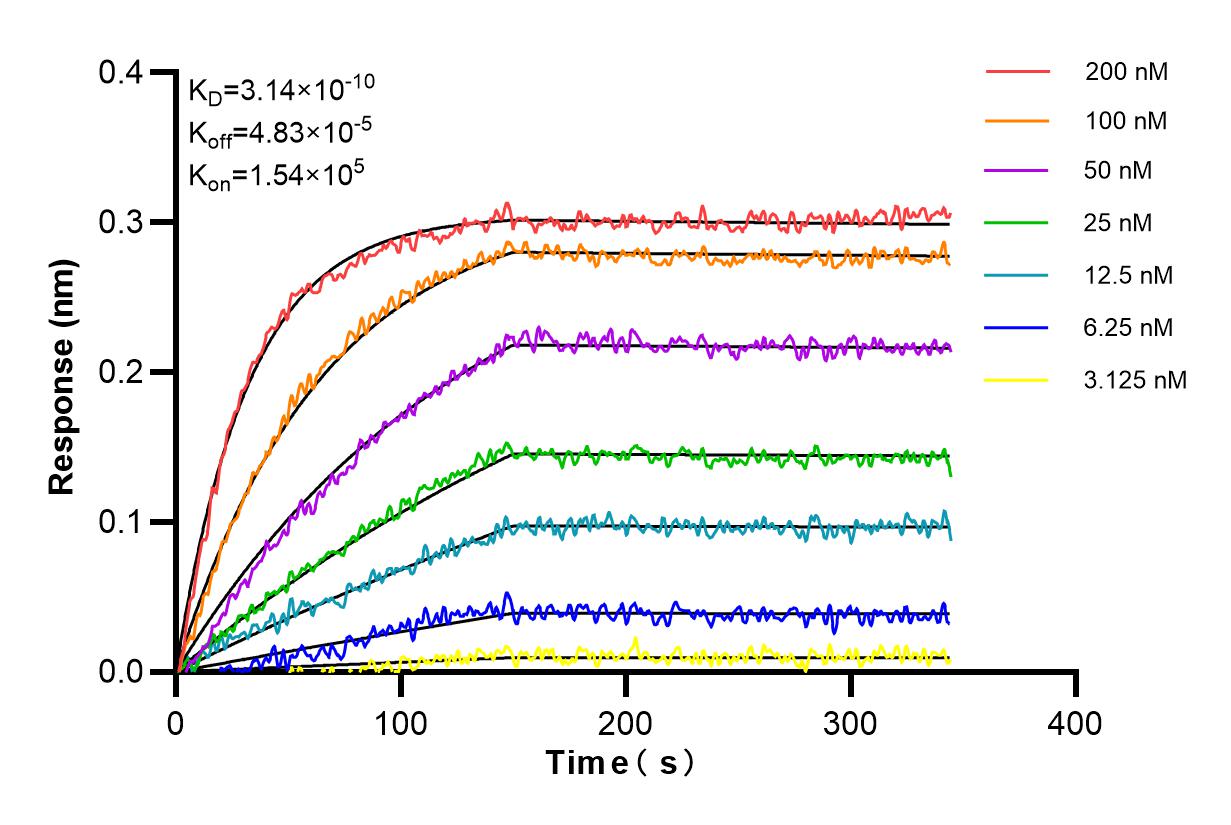Validation Data Gallery
Tested Applications
Recommended dilution
| Application | Dilution |
|---|---|
| It is recommended that this reagent should be titrated in each testing system to obtain optimal results. | |
Product Information
85931-1-PBS targets FLI1 as part of a matched antibody pair:
MP02198-1: 85931-3-PBS capture and 85931-1-PBS detection (validated in Cytometric bead array)
Unconjugated rabbit recombinant monoclonal antibody in PBS only (BSA and azide free) storage buffer at a concentration of 1 mg/mL, ready for conjugation. Created using Proteintech’s proprietary in-house recombinant technology. Recombinant production enables unrivalled batch-to-batch consistency, easy scale-up, and future security of supply.
This conjugation ready format makes antibodies ideal for use in many applications including: ELISAs, multiplex assays requiring matched pairs, mass cytometry, and multiplex imaging applications.Antibody use should be optimized by the end user for each application and assay.
| Tested Reactivity | human, mouse |
| Host / Isotype | Rabbit / IgG |
| Class | Recombinant |
| Type | Antibody |
| Immunogen |
CatNo: Ag36169 Product name: Recombinant human FLI1 protein Source: e coli.-derived, PET28a Tag: 6*His Domain: 103-452 aa of BC010115 Sequence: NSYMDEKNGPPPPNMTTNERRVIVPADPTLWTQEHVRQWLEWAIKEYSLMEIDTSFFQNMDGKELCKMNKEDFLRATTLYNTEVLLSHLSYLRESSLLAYNTTSHTDQSSRLSVKEDPSYDSVRRGAWGNNMNSGLNKSPPLGGAQTISKNTEQRPQPDPYQILGPTSSRLANPGSGQIQLWQFLLELLSDSANASCITWEGTNGEFKMTDPDEVARRWGERKSKPNMNYDKLSRALRYYYDKNIMTKVHGKRYAYKFDFHGIAQALQPHPTESSMYKYPSDISYMPSYHAHQQKVNFVPPHPSSMPVTSSSFFGAASQYWTSPTGGIYPNPNVPRHPNTHVPSHLGSYY 相同性解析による交差性が予測される生物種 |
| Full Name | Friend leukemia virus integration 1 |
| Calculated molecular weight | 452 aa, 51 kDa |
| Observed molecular weight | 51 kDa |
| GenBank accession number | BC010115 |
| Gene Symbol | FLI1 |
| Gene ID (NCBI) | 2313 |
| Conjugate | Unconjugated |
| Form | |
| Form | Liquid |
| Purification Method | Protein A purification |
| UNIPROT ID | Q01543 |
| Storage Buffer | PBS only{{ptg:BufferTemp}}7.3 |
| Storage Conditions | Store at -80°C. |
Background Information
Friend leukemia virus integration1 (FLI1) that is also termed EWSR2 encodes a sequence-specific transcriptional activator involved in Ewing's sarcoma (EWS), a malignant small, round, blue cell tumour. It is a rare disease in which cancer cells are found in the bone or in soft tissue. The most common areas in which it occurs are the pelvis, the femur, the humerus, the ribs and clavicle. EWS occurs most frequently in teenagers and young adults. FLI1 protein may act as an aberrant transcription factor, but exact mechanisms of oncogenesis remains unknown.

